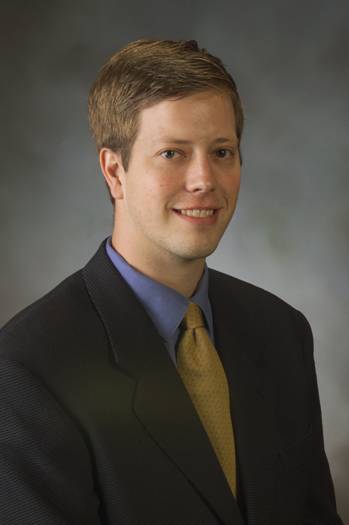ACADEMIA
University receives Grand Challenges Explorations funding
Peter Vikesland, associate professor of civil and environmental engineering at Virginia Tech, will pursue an innovative global health research project, titled "Inkjet Imprinted Paper for Polio Virus Detection and Differentiation."
Grand Challenges Explorations funds scientists and researchers worldwide to explore ideas that can break the mold in how we solve persistent global health and development challenges. Vikesland's project is one of 110 Grand Challenges Explorations grants announced Nov. 7, 2011.
"We believe in the power of innovation -- that a single bold idea can pioneer solutions to our greatest health and development challenges," said Chris Wilson, director of Global Health Discovery for the Bill and Melinda Gates Foundation. "Grand Challenges Explorations seeks to identify and fund these new ideas wherever they come from, allowing scientists, innovators and entrepreneurs to pursue the kinds of creative ideas and novel approaches that could help to accelerate the end of polio, cure HIV infection or improve sanitation."
Projects that are receiving funding show promise in tackling priority global health issues where solutions do not yet exist. This includes finding effective methods to eliminate or control infectious diseases such as polio and HIV as well as discovering new sanitation technologies.
Vikesland's project will employ paper-based diagnostics, already used to detect proteins and chemical contaminants, but have yet to be used for virus detection. Polio, a problematic disease in many developing regions of world, is a suitable candidate for initial studies to determine if paper-based tests can be used for the isolation and detection of virus, according to Vikesland.
"There is a tremendous need for rapid, sensitive, and field-deployable detection methods that are capable of discriminating polio virus types, while minimizing the risks of sample contamination and disease transmission and we believe paper-based methods may work," Vikesland said.
In collaboration with colleagues Krista Wigginton of the University of Maryland and Tamar Kohn of Ecole Polytechnique Federale de Lausanne of Switzerland, Vikesland has proposed to develop a simple, low-cost virus detection method that uses an inkjet printer and readily available resources to produce paper-based substrates that differentiate polio virus types extracted from wastewater.
"We believe there is potential to move viruses through paper using capillary flow, and thus paper-based diagnostics can be used to isolate viruses such as polio virus," Vikesland explained. Vikesland is a past recipient of a five-year National Science Foundation CAREER award that he used to study the use of nano-particles for the removal of hazardous solvents from groundwater. Additional funding from the National Science Foundation has supported his efforts to develop novel detection methods for waterborne pathogens.
Grand Challenges Explorations is a U.S. $100 million initiative funded by the Bill and Melinda Gates Foundation. Launched in 2008, Grand Challenge Explorations grants have already been awarded to nearly 500 researchers from over 40 countries. The grant program is open to anyone from any discipline and from any organization. The initiative uses an agile, accelerated grant-making process with short, two-page online applications and no preliminary data required. Initial grants of $100,000 are awarded two times a year. Successful projects have an opportunity to receive a follow-on grant of up to U.S. $1 million.



 How to resolve AdBlock issue?
How to resolve AdBlock issue?